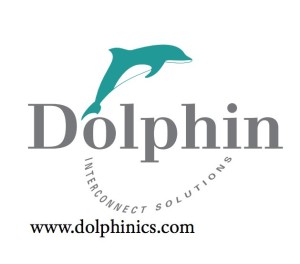 Today Curtiss-Wright’s Defense Solutions division announced that it is collaborating with Dolphin Interconnect Solutions to bring Dolphin’s eXpressWare PCIe Software Suite to the embedded aerospace and defense market. Available separately or as part of Curtiss-Wright’s OpenHPEC Accelerator Suite of best-in-class software tools, this PCIe Fabric Communications suite speeds and simplifies the design of high-speed, low-latency PCIe fabric-based peer-to-peer communications in OpenVPX-based High Performance Embedded Computing (HPEC) systems for demanding Radar, SIGINT and EW applications.
Today Curtiss-Wright’s Defense Solutions division announced that it is collaborating with Dolphin Interconnect Solutions to bring Dolphin’s eXpressWare PCIe Software Suite to the embedded aerospace and defense market. Available separately or as part of Curtiss-Wright’s OpenHPEC Accelerator Suite of best-in-class software tools, this PCIe Fabric Communications suite speeds and simplifies the design of high-speed, low-latency PCIe fabric-based peer-to-peer communications in OpenVPX-based High Performance Embedded Computing (HPEC) systems for demanding Radar, SIGINT and EW applications.
We believe the combination of Curtis Wright’s solutions and our PCIe software brings a new level of low latency and flexibility to the HPEC market,” said Hugo Kohmann, CEO of Dolphin Interconnect Solution. “Dolphin’s software suite enables customers to benefit from the constantly evolving PCIe standard. The suite supports standard networking APIs, simplifying the approach to building complex HPEC systems while taking advantage of standard and new PCI Express functionality.”
The wide range of easy to use common APIs reduces the complexity of architecting supercomputer-class solutions that fully leverage the advantages of PCIe fabrics. Compared to Ethernet, SRIO and InfiniBand™-based HPEC designs, PCIe fabrics simplify system architectures and improve size, weight, power and cost (SWaP-C), eliminating the need for network interface controller (NIC) devices. The eXpressWare APIs also increase fabric scalability with support for PCIe Gen1, Gen2 and Gen3 data transfer rates and lane widths ranging from 1 to 16 lanes, enabling peer-to-peer data communication at speeds up to 128 Gb/s. Curtiss-Wright supports PCIe data rates up to Gen3 on a range of its SWaP-C-optimized 3U OpenVPX embedded processor modules, including the VPX3-1259 single board computer and the VPX3-482 (CHAMP-XD1) digital signal processor.
Curtiss-Wright’s OpenHPEC Accelerator Suite greatly reduces program risk by uniquely transferring proven and robust development tools from the commercial High Performance Computing (HPC) market to the COTS market, enabling system integrators to more effectively design highly scalable supercomputer-class HPEC system solutions. The addition of Dolphin’s eXpressWare to this development tool suite will provide system designers with the APIs they need to architect very high-speed processor-to-processor communications within HPEC systems. This approach also eliminates the need for COTS system integrators to develop their own time consuming and costly middleware to layer on top of APIs provided by hardware vendors. Previously, this middleware was needed by system integrators to protect their system designs from being locked into proprietary software architectures.
We are very excited to be the first embedded COTS vendor to bring Dolphin’s best-in-class PCI Express fabric communications technology to the compute-intensive HPEC system market,” said Lynn Bamford, Senior Vice President and General Manager, Defense Solutions division. “Our customers are seeking cost-effective supercomputer-computer solutions for today’s most challenging radar, image and signal processing applications and Dolphin’s support for up to 128 Gb/s data rates enables us to develop a whole new level of SWaP-C optimized rugged systems.”
The eXpressWare software suite speeds system development through the use of common communications API interfaces, including standard TCP/IP networking interfaces, SuperSockets (socket interface without the TCP/IP stack overhead), and message passing via MPI. For the highest performance and maximum control, an optimized shared memory API called SISCI (Software Infrastructure Shared-memory Cluster Interconnect) is also supported.
Dolphin’s software suite is supported on a wide range of Curtiss-Wright single board computers (SBC) and digital signal processor (DSP) modules, and supports any PCIe lane width and bus speed interconnect. For modules that support on-board DMA, the libraries have been optimized to make use of DMA to maximize data throughput and reduce CPU overhead. Supported Curtiss-Wright modules include:



